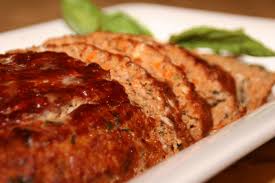Twelve Months to Live
Some years ago I was enjoying a Shrove Tuesday pancake supper, when a parishioner came to me and said, “I want you to meet a friend.” I could see a woman with white hair sitting at her table. We walked over, I shook her hand and said, “Hello, my name is David Anderson.” She said, “Oh, I’ve met you before. Do you remember?” I drew a blank.
She said, “You witnessed the signing of my will.” I looked at her with more than puzzlement, and she went on. “They told me I was dying, so I revised my will there in the hospital. They said we needed someone to witness my signature, my daughter stepped out into the hallway as you walked by.”
Then I remembered. I was making a hospital call—about four years ago. I remembered signing my name and thinking what an anonymous witness I had been to some woman’s last act.
Now, four years later, here was the “dying” woman, sitting in our parish hall, eating her pancakes and clearly in the pink of health. “You didn’t die!” I said. “Why didn’t you die?”
The woman said, “Oh, I don’t know, exactly. My life was slipping away and I didn’t have the will to live anymore. And I wasn’t eating. The nurses would plop down a tray, but they knew I wouldn’t eat it,” she said. “But then one day they brought me my favorite, mashed potatoes and gravy. And I ate a little of that. And I lay there and thought, ‘I’ve got to eat to live.’ And then no matter what they brought me I ate it, and it tasted good. I got my strength back and my will to live. And, I’m active now. I’m alive!”
Bernie Siegel, a physician who spent a lifetime walking with patients through sickness and death, makes this observation. “In many cases, people who’ve become aware of their mortality find that they’ve gained the freedom to live. They are seized with an appreciation for the present; every day is my best day, this is my life; I’m not going to have this moment again. This seems so simple—shouldn’t we all spend our lives that way? But we tend not to make those kinds of choices until someone says, ‘You have 12 months to live.’”
Today is Ash Wednesday. If you find your way to a church with an ash pot, someone will smear some on your head and say, “Remember that you are dust, and to dust you shall return.” That’s just a fancy church way of saying: You have 12 months, 12 days, 12 years—who knows? So live! Eat that meatloaf. Walk outside and breathe the cold night air, watch the moonlight on snow, lift your arms and marvel that they obey your merest thought, feel the aches in your bad hip and in your heart, half-broken from some loss, and thank God you are alive to feel it all.
“Remember that you are dust.” Once we let death teach us how to live, we understand that all the “sins” we keep hearing about in Lent are not only moral wrongs, they’re life thieves. The lie we live, the pattern of selfishness or addiction or simple heedlessness—it’s what’s robbing us of the joy of life.
I want to remember that on Ash Wednesday, but I will forget—I know it. I’m hoping someone will read this, run into me in the parking lot, tap me on the shoulder and say, “Imagine: You have 12 months to live.”

Amen… Try to live everyday with that same sense of marvel and joy!
and today is valentine’s day and i wish you and pam a happy one. thank you for this story, david. my other brother, the twin of the one who died this summer, is going home from hospital with hospice today and instead of focusing on how short his life has been, i’m refocused on living each remaining one with gratitude.
Thanks, Sandy–you know more about this than I do. I stand in awe. Lots of love–
David I love your Finding Your Soul and also those who post so many meaningful responses.Blessed Lent to all
Needed this- Thank you!!